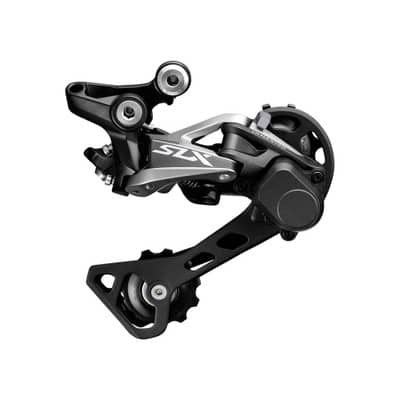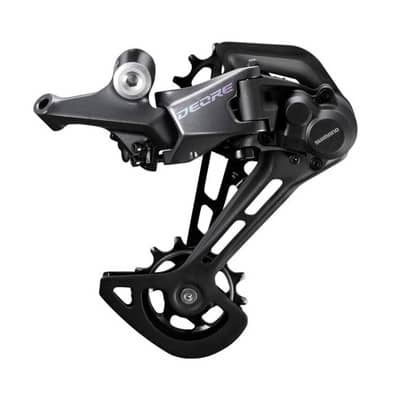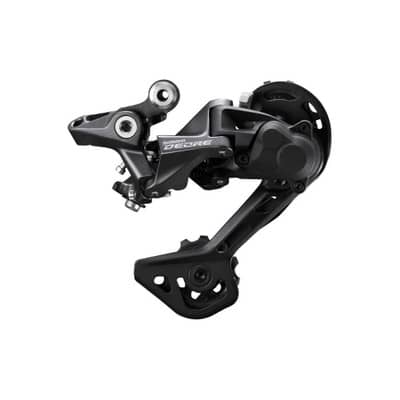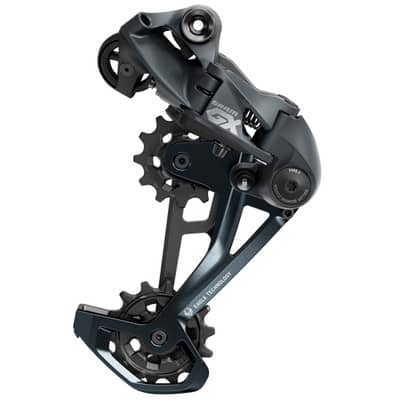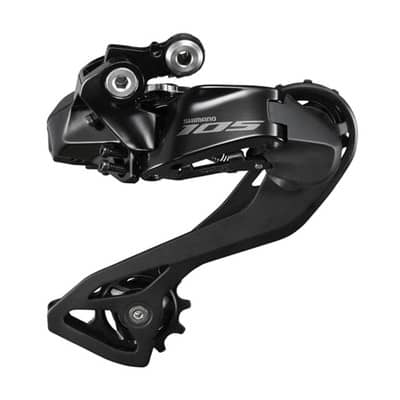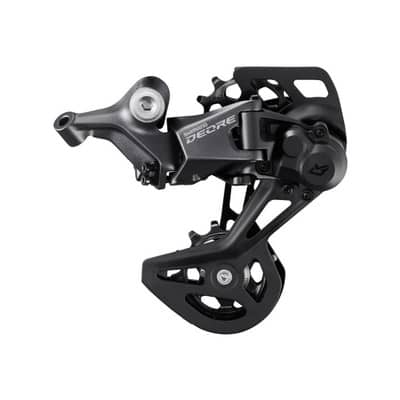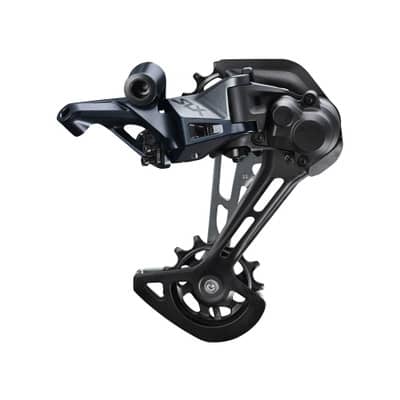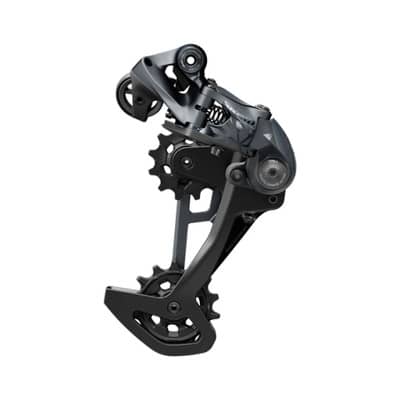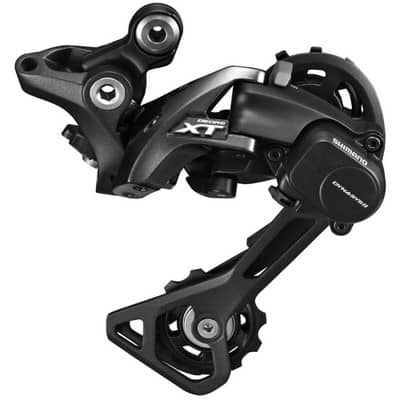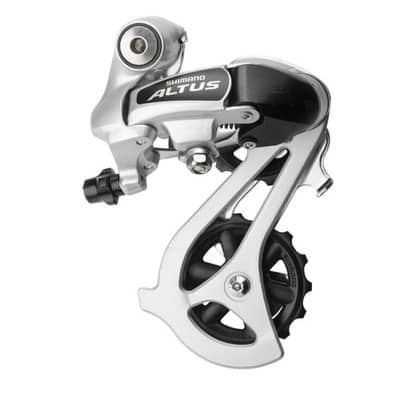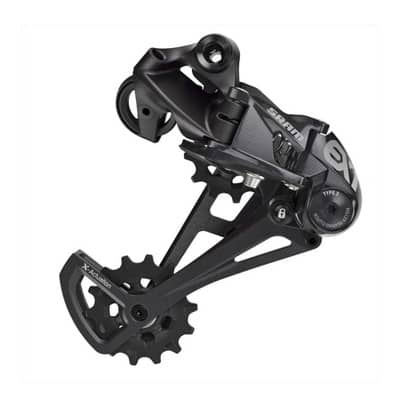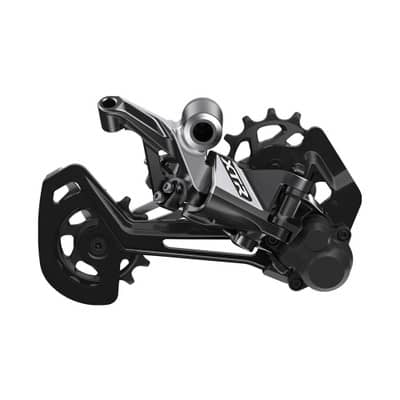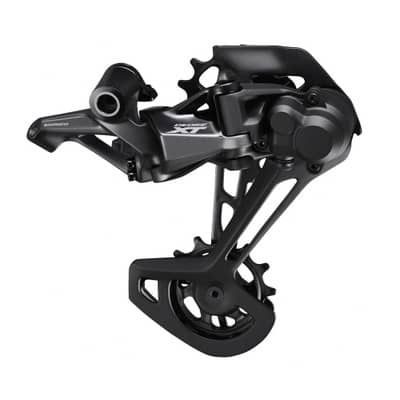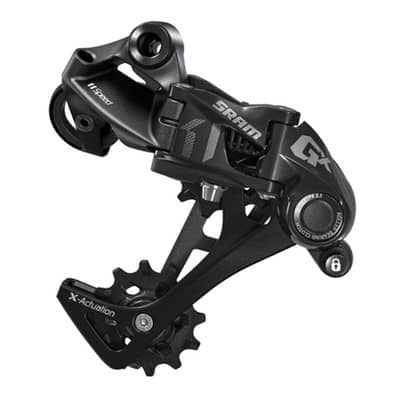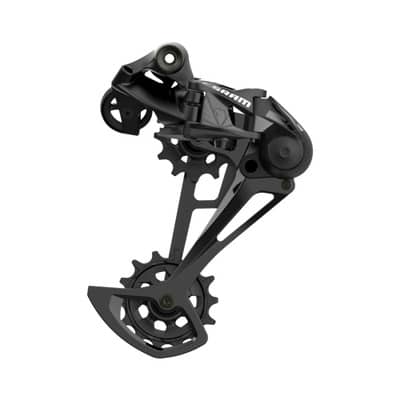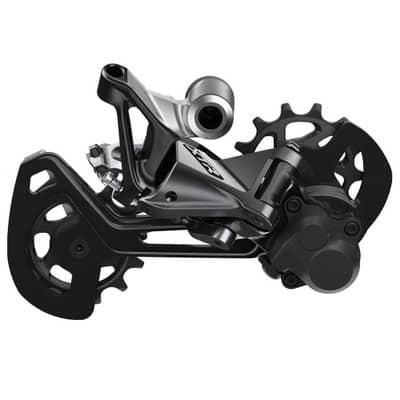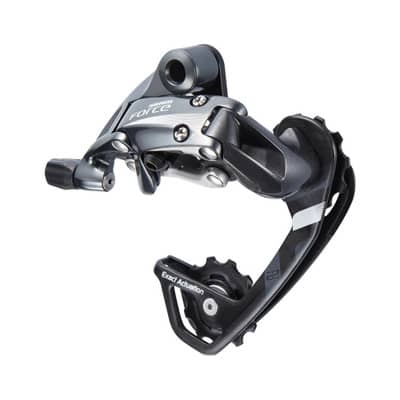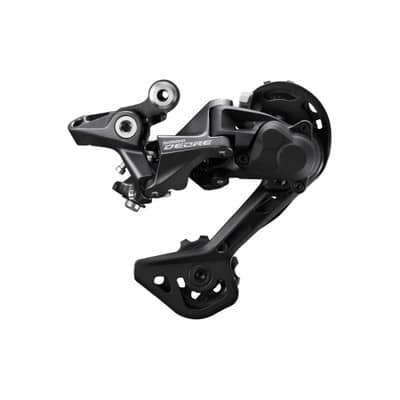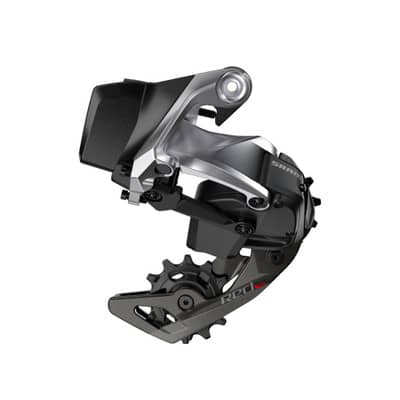Rear derailleurs
The rear derailleur is responsible for the rear gear changes in derailleur gears and stands like no other component representative of the quality of the entire shifting group.By operating the shift lever on the handlebars, it is possible to change the gear ratio while riding by the front derailleur throws the chain on different sized chainrings and the rear derailleur switches the chain to different sized sprockets.
A new rear derailleur can significantly improve the gearing of your bike. Known brands manufacturers in the field of circuit and rear derailleur are: Shimano, SRAM, Campagnolo
-60%
59,90 € 23,90 €*
excl. shipping costs
In stock, available
-20%
124,90 € 99,90 €*
excl. shipping costs
In stock, available
-24%
68,95 €*
excl. shipping costs
In stock, available
-22%
101,95 € 79,90 €*
excl. shipping costs
In stock, available
131,95 €*
excl. shipping costs
In stock, available
134,90 €*
excl. shipping costs
In stock, available
-15%
93,95 € 79,90 €*
excl. shipping costs
In stock, available
114,95 €*
excl. shipping costs
In stock, available
59,95 €*
excl. shipping costs
In stock, available
-15%
94,00 € 80,00 €*
excl. shipping costs
In stock, available
- 1
- 2
- ...
- ...
- ...
- ...
Why is the rear derailleur important?
-
Speed and efficiency: The rear derailleur allows you to choose the ideal gear ratio to accelerate faster or ride comfortably on long distances. This increases the efficiency and performance of your ride.
-
Adaptation to terrain: With the rear derailleur you can easily switch between lighter and heavier gears to adapt to different terrains. This is especially useful when riding uphill, downhill or on flat trails.
-
Comfortable riding: The rear derailleur allows you to maintain your pedaling style without too much resistance or too little power transfer.
-
Chain tension extension: the rear derailleur keeps the chain tensioned on the selected sprocket, preventing unnecessary chatter or slippage.
-
Precise shifting: A well-adjusted rear derailleur ensures precise and smooth shifting between gears without the chain skipping or getting stuck.
What you should pay attention to
-
Compatibility: Make sure the rear derailleur is compatible with your gear type and drive system.
-
Adjustment: The rear derailleur should be properly adjusted to ensure precise shifting. If it is not properly adjusted, you may have problems shifting.
-
Durability: Choose a rear derailleur made of high quality materials to ensure durability and reliability.
-
Maintenance: Keep the rear derailleur clean and lubricated to ensure smooth shifting. Regularly check the condition of the rear derailleur and perform maintenance as needed.
The rear derailleur is an unsung hero of your bike, working behind the scenes to provide a seamless and powerful shifting experience. By paying attention to compatibility, adjustment, durability, and maintenance, you can ensure that your rear derailleur is functioning optimally and providing you with an enjoyable and effective ride.
The life of a rear derailleur
The lifespan of a rear derailleur depends on a number of factors, including riding frequency, maintenance habits, environmental conditions, and the quality of the derailleur itself. Here are some signs of when you may need a new rear derailleur:
-
Poor or unreliable shifting: If you notice that shifting between gears is no longer precise or smooth, this could indicate wear or damage to the rear derailleur.
-
Skipping chain: If the chain skips or does not stay on the selected sprocket during shifting, this could indicate a worn or damaged rear derailleur spring.
-
Loud Noise: If the rear derailleur is unusually loud or rattles while riding, this may indicate looseness or wear of the moving parts.
-
Rear derailleuris bent or damaged: Visible damage, such as a bent rear derailleur or broken parts, usually requires replacement of the rear derailleur.
-
Wear parts: A rear derailleur is made up of various moving parts that can wear out over time, especially the shift rollers and spring. If these parts are heavily worn, functionality may be compromised.
-
Corrosion or rust: If the rear derailleur is corroded or has rust, it may affect shifting performance and require replacement.
-
Accidents or impacts: If your bike has been involved in an accident or subjected to impacts, both the rear derailleur and other components should be inspected for possible damage.
If one or more of these signs appear, it may be time to install a new rear derailleur. It is advisable to perform regular maintenance on your bike and check the rear derailleur for wear or damage. Timely detection of problems and replacement of the rear derailleur, if necessary, can help ensure a smooth and safe riding experience.

